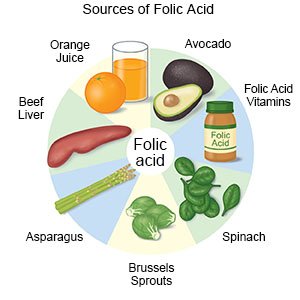Granulomatosis with Polyangiitis
Medically reviewed by Drugs.com. Last updated on Sep 23, 2025.
AMBULATORY CARE:
Granulomatosis with polyangiitis (GPA)
is a rare blood vessel disease where your blood vessels are inflamed. Small lumps called granulomas may also form when the cells lining your blood vessels die. This can cause a decrease in blood flow to your organs, most commonly your respiratory tract, lungs, and kidneys.
Common signs and symptoms:
- A cough or coughing up blood
- Blood in your urine or decreased urination
- Body aches and fever
- Ear and sinus infections
- Red, swollen, burning, or painful eyes
- Runny, sore nose and nosebleeds
- Shortness of breath and chest pain
- Skin and mouth sores
Call your local emergency number (911 in the US) if:
- You have sudden chest pain or shortness of breath.
Call your doctor if:
- You have blood in your urine or are urinating less than normal.
- You have new or increased hearing loss.
- You have worse vision or vision loss.
- You have a fever.
- You have new sores on your skin or in your mouth.
- You have red and swollen eyes.
- You have questions or concerns about your condition or care.
Treatment for GPA
- Steroids are given to decrease inflammation.
- Immunosuppressive therapy may be given to slow your immune system and help prevent organ damage.
- Plasma exchange is done to separate the plasma in your blood from your blood cells. Plasma is the liquid part of your blood. Your blood cells are then returned to your body and your body creates new plasma. Plasma exchange may be needed if you have life-threatening organ damage. Ask for more information about plasma exchange.
- Surgery may be needed to help control nosebleeds or repair damage to your nose. You may also need surgery to repair damaged tissue in your airway. A kidney transplant may be needed if GPA causes your kidneys to fail. Ask for more information about surgeries to treat the effects of GPA.
Treatment options
The following list of medications are related to or used in the treatment of this condition.
Self Care
- Increase your folic acid intake.: You may need to eat foods high in folic acid or take a folic acid supplement. Immunosuppressive medicines often decrease the amount of folic acid in your body. Ask for information on foods and supplements high in folic acid and if you need to take them.

- Drink fluids as directed.: Ask how much liquid to drink each day and which liquids are best for you.
- Use lotion or petroleum jelly on your nose if it is dry and crusted. Nasal irrigation may also decrease dryness and crusting in your nose.
- Do not smoke. Nicotine and other chemicals in cigarettes and cigars can cause lung damage. Ask your healthcare provider for information if you currently smoke and need help to quit. E-cigarettes or smokeless tobacco still contain nicotine. Talk to your healthcare provider before you use these products.
Follow up with your doctor as directed:
You may need blood or urine tests to check your kidney function and levels of medicine. Imaging tests may be done to check for infection and organ function. Write down your questions so you remember to ask them during your visits.
© Copyright Merative 2025 Information is for End User's use only and may not be sold, redistributed or otherwise used for commercial purposes.
The above information is an educational aid only. It is not intended as medical advice for individual conditions or treatments. Talk to your doctor, nurse or pharmacist before following any medical regimen to see if it is safe and effective for you.
Learn more about Granulomatosis with Polyangiitis
Treatment options
Care guides
Symptoms and treatments
Further information
Always consult your healthcare provider to ensure the information displayed on this page applies to your personal circumstances.
